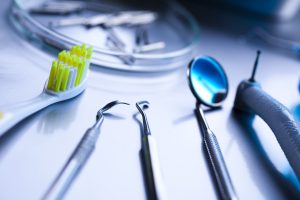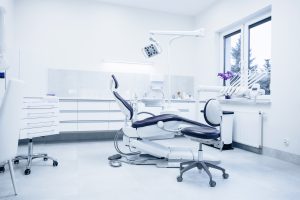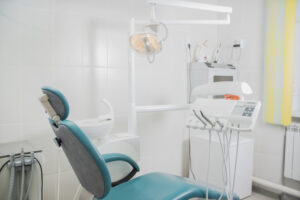As an attorney and business advisor that works with healthcare professionals, including dentists, we are seeing a lot of activity in the dental practice purchase and sale market. And, it is really exciting to be a part of it. In fact, we have to recognize that between 2020 and 2030, we are going to see the most significant transfer of wealth and succession of businesses and assets that we may have ever seen or will see occur, as the baby boomers move forward with plans of retirement and transferring assets. It is an exciting time for everyone involved in that process. It is also important for everyone involved to understand the options when it comes to the financing side, including the continued benefits that the Small Business Administration (“SBA”) is providing during this COVID era, especially if you are on the buyer side of that equation.
With that said, I reached out to my good friend Tom Betz with The Huntington National Bank to obtain clarification about some of the exciting benefits of the SBA programs. Tom and the Huntington SBA team provided me with some detail on how Huntington has been able to partner with the SBA to support the needs of healthcare professionals, including dentists that we work with — particularly in support of ownership transfers. So, I asked Huntington to provide me with a summary of what is occurring in the SBA market, as we work our way out of COVID. Here is that summary.
There are a number of exciting temporary stimulus enhancements to the legacy SBA program as part of the CARES Act in 2020, and then again as part of the Economic Aid Act passed in December of 2020.
Please allow me to clarify those below:
1. The SBA typically provides lenders a loan loss guaranty of 75% on SBA 7a loans (i.e., if the lender did everything compliantly and followed all the SBA rules, the SBA would reimburse the lender 75% of their loan losses after orderly liquidation). The Economic Aid Act increased that guaranty percentage to 90% of 7a loans, and for smaller SBA loans under $350,000 increased the guaranty percentages to 75% through the remainder of the SBA fiscal year (ending 9/30/2021). This does not mean that 100% or 90% of loans will be approved because underwriting guidelines and the rules around what is prudent to lending have not changed. But it does help lenders say yes to some projects that they may have been on the fence about, before the act was passed. We have four months remaining of that enhancement.
- Did you hear that folks, we have four months left on that…
2. As to the interest rate of 4%, this is a very exciting feature of one of the SBA programs currently. The SBA 504 loan program is the SBA’s *Fixed Asset* funding program. For eligible rules, lenders work in participation with a 504 Community Development Corporation to provide 90% funding on fixed asset acquisitions and refinance. 50% of the project is funded by a traditional bank loan, and 40% is funded by the CDC with a subsidized federal debenture which is currently providing 25 year fixed rates at 3.85%. Not all projects are eligible for this funding as it is for fixed assets, but it is a very attractive option for firms looking to purchase real estate or long-lived fixed assets.
3. The payment subsidy has been a very exciting feature of the SBA enhancements this past year or so. The six months payment subsidy was part of the CARES Act and only applied to loans that closed by the end of the last fiscal year, 9/28/2020. However, the Economic Aid Act from December of 2020 reauthorized the subsidies in a different form. Through the end of this fiscal year and *only while the funding appropriation remains available* the SBA is subsidizing three months of a new SBA client’s loan payments. And they are, in fact, making principal and interest payments for these clients. They clarified in January 2021 that these payments are non-taxable income as well.
So, if you are out there looking to purchase a dental practice, or any other form of healthcare business for that matter, such as a veterinary practice or optometry practice, we must consider all financing options. The SBA may not be the best fit for all. But, it certainly has to be in the discussion. Thus, I did want to provide this update on what is occurring out there. So, whether it is Huntington or another banking relationship that you have, you should absolutely ensure that you connect with that contact and obtain greater detail and clarification as to what is best for you.
In sum, we recommend that our doctor and dental practice clients consider all funding options when it comes to purchasing a business and refinancing that business. We need to make informed decisions and take decisive action to ensure that we continue to watch the bottom line while we work to minimize disruption in our cash flow to ensure that we maximize profits. If you have questions related to the funding of your next dental practice purchase, please contact me. I would be happy to work with you, address your concerns, plan, and outline your options with you.

 Vince Nardone Discusses Employment Contracts with Ohio State Dental Students
Vince Nardone Discusses Employment Contracts with Ohio State Dental Students  Navigating the 2024 Landscape: Strategies and Considerations for Dental Support Organizations (DSOs)
Navigating the 2024 Landscape: Strategies and Considerations for Dental Support Organizations (DSOs)  Sellers of Dental Practices to DSOs need to have a Buyer’s Mentality Requiring Selectivity and a Well-Thought-Out, Decision-Making Process
Sellers of Dental Practices to DSOs need to have a Buyer’s Mentality Requiring Selectivity and a Well-Thought-Out, Decision-Making Process  Increasing Profitability by Minimizing Disruptions within Your Dental Practice
Increasing Profitability by Minimizing Disruptions within Your Dental Practice  As a Dentist, What Are My Obligations Related to Out-of-State Patients and Potential Prescription Drug Abuse?
As a Dentist, What Are My Obligations Related to Out-of-State Patients and Potential Prescription Drug Abuse?